UNCOMMON FAITH
The Early Years of Opus Dei 1928-1943
JOHN F. COVERDALE
Scepter Publishers
Dedicated to
ANN COVERDALE LUECKE
and to the memory of
JOHN L. LUECKE
with gratitude and affection
Contents
Introduction
Opus Dei is a part of the Catholic Church. Technically, it is a personal prelature. Its aim is to promote among Catholics of all social classes a life fully consistent with their faith. It helps its members and other people to turn their work and the other activities that make up their day-to-day lives into occasions of loving God and serving their fellow men and women, reminding them that all the baptized are called to seek sanctity and spread the Gospel. Today it has about 80,000 faithful from ninety nations. About 3,000 are in the United States; 47,000 in Europe; 25,000 in Central and South America; 4,500 in Asia, the Pacific and Australia; and 1,500 in Africa. According to Vittorio Messori, the Italian journalist who collaborated with John Paul II on the best-selling book Crossing the Threshold of Hope, 'Whatever the future of the Church ... it seems safe to predict that Opus Dei will play a large role in it."
This book recounts the early history of Opus Dei, when it was just a small seed beginning to sprout. I chose 1943 as the ending point of the early history. At that time Opus Dei had only a couple of hundred faithful, all of them single college students or relatively recent graduates living in Spain. Nevertheless, by 1943, Opus Dei's founder, Blessed Josemara Escriv, had a concept of all of its essential features and of how they would be fleshed out. Everything that has come later, and what has yet to come, is, therefore, a development of what was already in place by 1943.
Looking back after more than half a century, it would be easy to soften unconsciously the harshness of the early history by bathing it in the light of later developments. The principal obstacle to Opus Dei's early development was the novelty of its message about personal dedication to the search for sanctity in daily life. Even today, despite the teaching of Vatican II about the universal call to sanctity and the development of a rich theology of the laity, many Catholics who have a clerical vision of the Church continue to find that message difficult to understand. More than thirty years before the Second Vatican Council, the assertion that nurses, lawyers, factory workers, and farm laborers were called by God to seek sanctity in the midst of their occupations struck most people, including most priests, as heretical. Of the few who admitted the theoretical possibility of actively seeking sanctity in ordinary life, the vast majority considered it quixotic actually to dedicate oneself to doing so. "If I'm going to take my religion that seriously," they thought, "I may as well become a priest."
In addition to this intrinsic difficulty, Opus Dei faced a host of other hurdles. Its founder was a young priest with no money and no social contacts. He found it difficult to scrape together enough funds to support himself, his mother, his sister, and his younger brother even on a very modest scale, much less to finance Opus Dei's activities. In addition, he did not belong to the diocese of Madrid, where Opus Dei was born, and, therefore, he faced a constant threat of being expelled from the diocese.
Shortly after the foundation of Opus Dei, Spain began to witness a series of legal attacks on the Church, as well as outbreaks of anticlerical violence. In this climate, most young men who were serious about their faith became so involved in political activities, and even in armed resistance to anticlerical violence, that they found it difficult or impossible to understand Opus Dei's stress on the need for an interior life of prayer and sacrifice.
A few years later, when Opus Dei was beginning to have a small core of members and had acquired a building in which to conduct its activities, the outbreak of the Spanish Civil War brought with it what may have been the most bloody persecution the Church has ever endured in Western Europe. Thousands of priests and many laymen were killed for their religious convictions. Churches were burned and religious services prohibited. The founder and most of the small number of members were forced to go into hiding. For three years, Opus Dei's formative activities were obstructed by the war, in the course of which its only center was destroyed. Two members died during the conflict, and others did not persevere under the difficult conditions of the war.
No sooner had the civil war ended and Opus Dei begun to resume its activities than World War II broke out. Spain was not directly involved in the war, but the climate of tension and uncertainty it created, coupled with a period of economic hardship and scarcity, presented new obstacles to Opus Dei's growth. More importantly, Opus Dei began to suffer a whole series of bitter attacks. Some came from enemies of the Church who resented Opus Dei's efforts to encourage Catholics to take their faith seriously; others came from members of the Falange, the dominant element in Franco's state party, who resented Opus Dei's defense of the political freedom of Catholics and its refusal to subscribe to Falangist political doctrine. The most important attacks, however, came from a number of priests and religious who viewed Opus Dei's message about the vocation of the laity as heretical and a threat to their efforts to win vocations for the priesthood and the religious life.
Despite all of these difficulties, Opus Dei not only survived but consolidated itself. Its survival and growth were not, however, foregone conclusions. They are due to the grace of God, but they also owe much to the extraordinary courage, fortitude, and faith of the founder and of his early followers, which this book documents.
* * *
The sources on which this book rests are fragmentary and uneven. On many events there is an abundance of material, on others very little, and on some none at all. For a number of reasons, including charity toward those who did not persevere in Opus Dei, the available sources focus almost exclusively on the people who stayed the course and contributed to Opus Dei's growth and development.
The text includes many quotations of Blessed Josemara Escriv. Some are taken from his written works, both published and unpublished. Others are taken from notes of things that he said on various occasions. In some cases I have used existing English versions, but in many cases where an English text was available I have used my own translation or have modified to a greater or lesser degree the previously published translation. For this reason, in the notes on sources of quotations I have referred to the original Spanish even when an English translation has been published. I have rendered the quotations freely, striving to capture the meaning rather than the literal sense. One point about translation merits special reference. Like any Spaniard of his time, Escriv used the term cristiano not only where a contemporary American would say "Christian" but also in some cases where we would say "Catholic." I normally translate cristiano and cristianos as "Christian" and "Christians," respectively, but sometimes as "Catholic" and "Catholics," depending on the context. As used in this book, the term "Christians" always includes Catholics and frequently has strong reference particularly to Catholics. It is never used in this book to refer specifically to fundamentalist Protestants, as is often the case in contemporary American usage.
Given the character of this book, 1 did not wish to encumber it with the apparatus of scholarly references. I limited myself, therefore, to indicating in the endnotes the sources of quotations. This does not mean that I am not indebted to many other sources for information about the development of Opus Dei and about its Spanish background. Although I cannot acknowledge them all individually, I do wish to express my special gratitude to Professor Stanley G. Payne, who was my mentor at the University of Wisconsin and whose books I have drawn on freely.
Next page
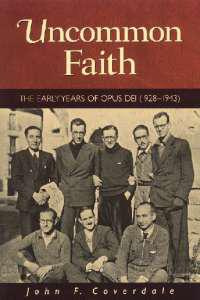
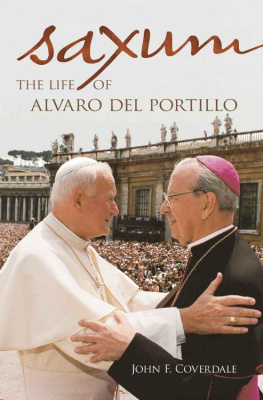
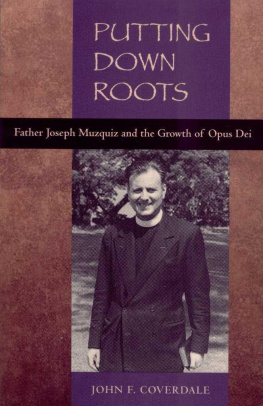

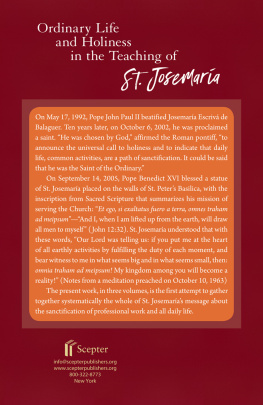
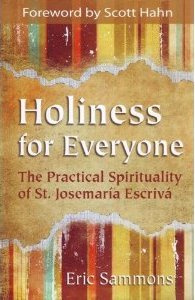
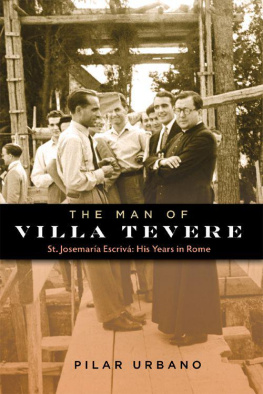
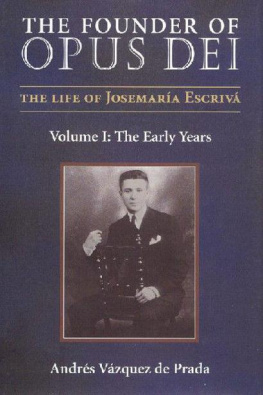
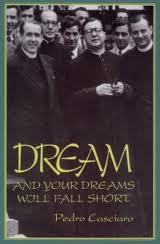
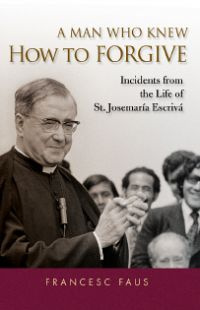

![Scott Hahn [Inconnu(e)] - Ordinary Work, Extraordinary Grace: My Spiritual Journey in Opus Dei](/uploads/posts/book/134758/thumbs/scott-hahn-inconnu-e-ordinary-work.jpg)